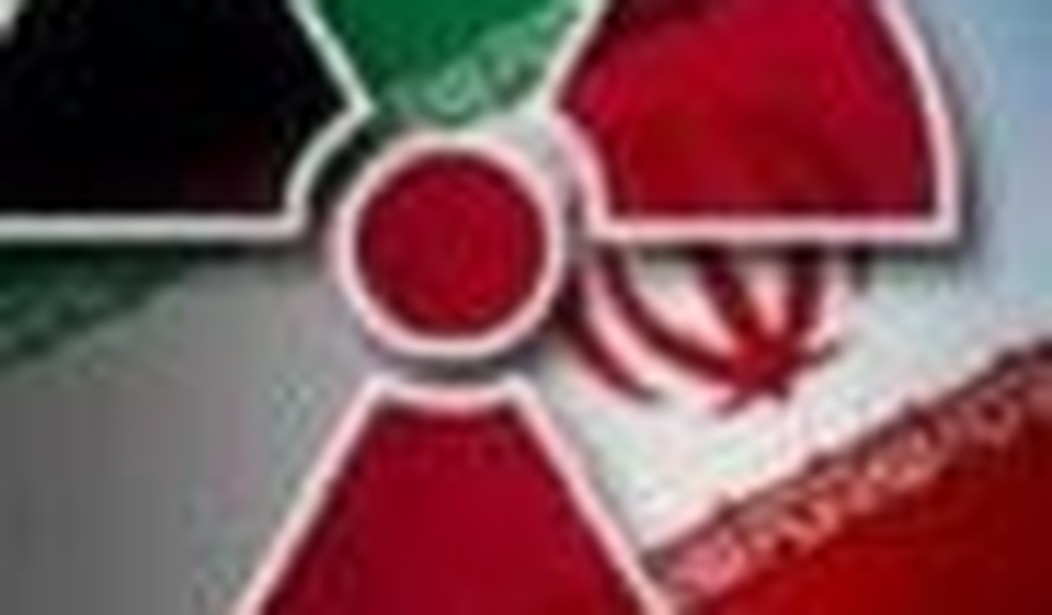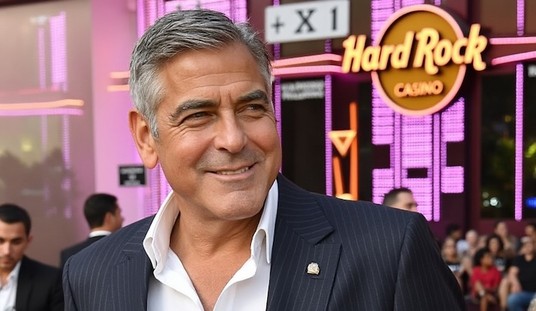Here’s a question: If Iran halted “its nuclear weapons development program in the fall of 2003 under international pressure,” as the U.S. NIE concluded in late 2007, then why is the UN Security Council now preparing to “approve new sanctions against Iran for refusing to suspend uranium enrichment”?
The answer lies in the distinction between a nuclear weapons program and possession of nuclear weapons materials. While there is some controversy over whether Iran plans to make nuclear weapons, there is no doubt that Teheran is rushing full speed ahead to acquire the materials with which to make them. Judging Iran is like deciding whether to believe a person who has acquired what are functionally gun barrels, receivers, trigger assemblies, sights, and bolts — all components of a firearm — and claims they are components for something else. There’s consensus that he is continuing to acquire more components; the only debate is over whether that person ever intends to assemble them into a firearm.
The members of the Security Council believe that Iran is redoubling its efforts to enrich uranium. The Associated Press reported four days ago that Iran “has started using new centrifuges that can churn out enriched uranium at more than double the rate of the machines that now form the backbone of the Islamic nation’s nuclear program. … ‘We are (now) running a new generation of centrifuges,’ the official IRNA news agency quoted Javad Vaidi, deputy of Iran’s Supreme National Security Council, as saying.”
Although the number of new-generation centrifuges Iran has brought online is relatively small, the Russian ambassador to the UN, Vitaly Churkin, said “Moscow could support new international sanctions against Iran if Tehran does not stop its uranium enrichment activities within days.” The urgency was highlighted by questions about the rate at which Iran is enriching uranium. The European Commission Joint Research Centre (JRC) modeled the process and concluded that even without the new generation centrifuges, Iran would have enough material to build a nuclear weapon by 2010, perhaps five years sooner than the U.S. NIE report.
But although Iran claimed the enrichment program was purely in pursuit of peaceful industrial uses, doubts remained over its intentions. The doubts were fueled by the discovery, known by international inspectors since 2005, that Iran was in the possession of instructions for fabricating hemispheres of uranium, a key component for an atomic bomb. Iran claims the instructions were simply handed to it by the A.Q. Khan nuclear proliferation network. It was included in a pile of documentation unasked for in the way that one might find a toy in a box of Crackerjacks. Other information handed to the IAEA by Western intelligence alleges that Iranians also received information “about the conversion of uranium dioxide into uranium tetrafluoride — an intermediate step in the production of uranium metal.”
To return to the earlier example comparing Iran to a man acquiring gun parts while denying the intention to assemble a gun, the Iranians have not only sped up buying gun parts, but have also been found in possession of gun assembly instructions.
Although the Security Council is widely expected to approve even more sanctions to punish Iran for continuing with its enrichment program, the question of whether Iran is allowed to proceed unhampered by the Great Powers may revolve around political and economic considerations rather than merely factual ones.
Iran’s new envoy to the European Union called on the body Wednesday to take a “new approach” to resolve the international standoff over its nuclear program, rather than backing new sanctions.
Ambassador Ali Asghar Kaji said Iran would like to improve its battered ties with the EU, and said his country wanted to become an energy partner for Europe. He said efforts by the 27-nation European Union and others to get fresh sanctions approved by the UN Security Council were unjustified.
Ambassador Kaji’s “new approach” was an obvious attempt to dangle the prospect of Iranian gas supplies before Europe, which has become increasingly dependent on Russian-controlled sources for energy. The Asia Times noted that the West is acutely aware of “Iran’s enormous untapped hydrocarbon reserves as an alternative to Russian supplies.” However, European attempts to use the Iranian lever to break the Russian gas choke hold by using Iranian gas have been prevented by the need to keep Teheran from developing a nuclear weapons industry.
So far Europe has had to choose between allowing the emergence of an unstable nuclear-armed Iran and remaining tied to Russia’s GAZPROM apron. The West would like to do a deal with Iran that will offer a large gas market in exchange for a convincing renunciation of nuclear ambitions. This is something Russia has sought to derail in order to prevent a rapprochement between Teheran and the Europeans.
But with Iran so close to achieving a nuclear weapon, Teheran may soon present both Europe and Moscow with a fait accompli. Once Iran achieves nuclear weapons status, maintaining further Western sanctions against it will be pointless. Iran will then receive all the investments it needs and Russia will be faced not only with a rival for its energy markets but a nuclear-armed one at that.
An Iran empowered by nuclear weapons and flush with oil revenues would create serious problems for Israel. With Teheran providing the gas for Europe and safe behind its nuclear deterrent, the diplomatic problems of Israel can only intensify. Egypt and Saudi Arabia may feel so threatened they may embark on their own nuclear program.
The adoption of new Security Council sanctions on Iran may be an attempt to reprise the so-called halt to Iran’s “nuclear weapons development program in the fall of 2003 under international pressure.” But even if that pressure succeeds once again, it may be years before the fact is known. By slow degrees Iran continues to advance towards its goal of achieving both nuclear weapons status and oil wealth.
Richard Fernandez writes at the Belmont Club.










Join the conversation as a VIP Member